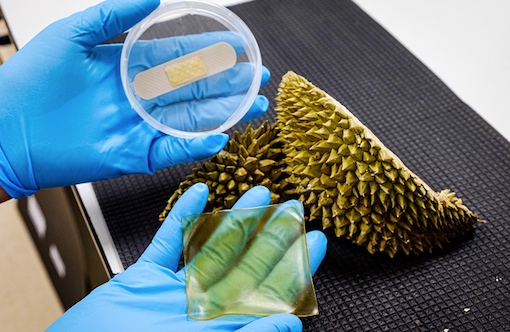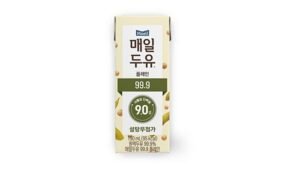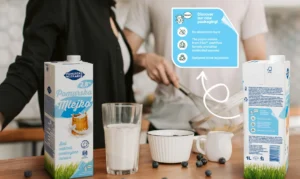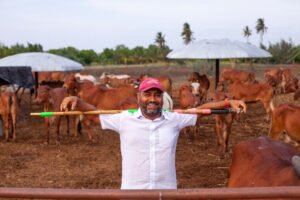Friday, 20 February 2026
Singapore develops antibacterial gel bandage using durian husk
The team is now looking for industry partners who may be keen to take their antibacterial gel bandage to market Food scientists from Nanyang Technological University, Singapore (NTU Singapore) have made an…

The team is now looking for industry partners who may be keen to take their antibacterial gel bandage to market
Food scientists from Nanyang Technological University, Singapore (NTU Singapore) have made an antibacterial gel bandage using the discarded husks of the popular tropical fruit, durian.
Known as the “King of Fruits” in Southeast Asia, the durian has a thick husk with spiky thorns which is discarded, while the sweet flesh surrounding the seeds on the inside is considered a delicacy.
By extracting high-quality cellulose from the durian husks and combining it with glycerol – a waste by-product from the biodiesel and soap industry – NTU scientists created a soft gel, similar to silicon sheets, which can be cut into bandages of various shapes and sizes.
They then added the organic molecules produced from baker’s yeast known as natural yeast phenolics, making the bandage deadly to bacteria.
Being non-toxic and biodegradable, the organic gel bandage is also expected to have a smaller environmental footprint than conventional synthetic bandages.
The clinical advantage of the new hydrogel bandage is that the natural yeast phenolics embedded will help to prevent the growth of bacteria such as Gram-negative E. coli and Gram-positive S. aureus. and the subsequent formation of biofilms (a layer of slime that can lead to antimicrobial resistance within a bacteria colony).
The team of four NTU researchers took two years to research and publish their findings and is now looking for industry partners who may be keen to take their antibacterial gel bandage to market.
Technology
Tetra Pak extends paper-based barrier packaging to high-speed packaging lines in Asia
Feb 19, 2026 | Company News
Food Testing
Redefining Trust in Organic Foods through Independent Testing
Feb 13, 2026 | Food Safety and Testing
AFNOR International Eyes Global Food Safety Growth with HACCP Group Takeover
Feb 04, 2026 | Australia
More Popular
Strong Q4 Drives Coca-Cola Consolidated to Record FY2025 Results
Feb 20, 2026 | Beverages
The Kraft Heinz Company Appoints Nicolas Amaya as President, North America
Feb 20, 2026 | Company News
Orkla Food Ingredients acquires Senna
Feb 20, 2026 | Company News






